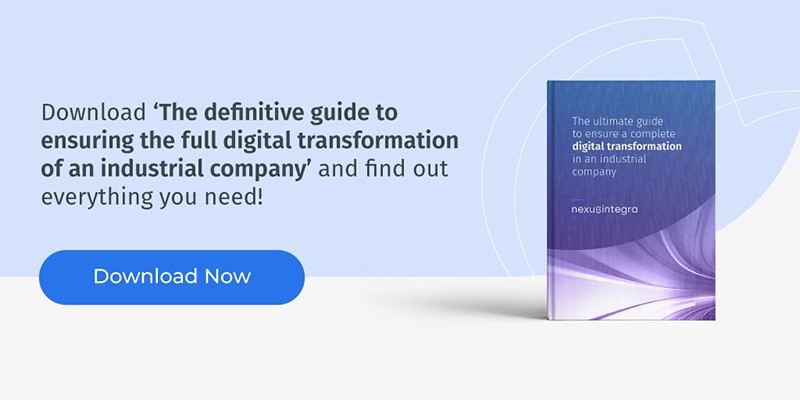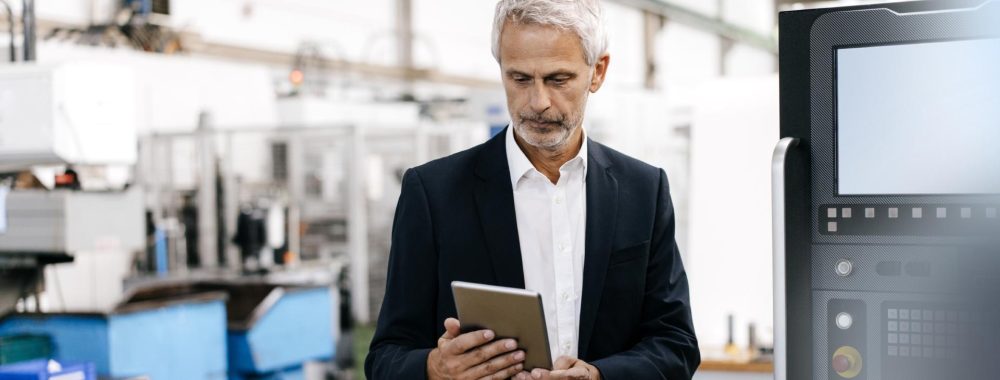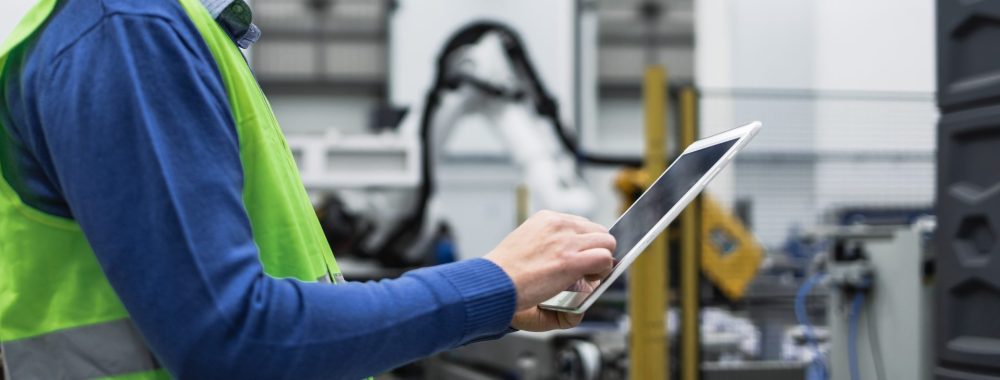It is clear that the application of the latest technologies is essential in the Fourth Industrial Revolution or Industry 4.0. This path towards the intelligent industry or Smart Factory, involves generating a new model of organization and control, which relies on the latest technological trends to improve processes, reduce costs and minimize time.
In this context, the industry must know and implement the different smart technologies available, but above all it is necessary to interconnect these innovations, to get their full potential and anticipate the future of the Smart Factory.
But which are the technological trends that are transforming the industry? We tell you about them in detail:
1. Hypersensitization of assets
The industrial sector is using IoT systems to maximize efficiency in asset management and improve production. To monitor, built-in sensors and RFID systems are used in products, devices, machinery or robots. The latter system allows industrial processes to be digitalized by means of wireless communication via radio signals. The RFID system has enabled industry to guarantee asset traceability and improve supply chain management.
The application of IoT in asset performance monitoring allows avoiding equipment inactivity thanks to hypersensorization. This combination of pioneering technologies enables breakthroughs in industrial control:
- Automated equipment management
- Real-time remote production control
- Detection of faults and monitoring of product quality at all stages of production
- Automatic inventory tracking
All the data obtained from intelligent hypersensing, together with other technologies such as SCADAs, enables industry to make smarter decisions, optimize industrial processes, and maintain consistent and efficient workflows.
2. Big Data
Industry 4.0 is already taking advantage of Big Data to go far beyond what IoT can offer, in terms of interconnection of elements and future projection. The Smart Factory has the great challenge of automating processes in an intelligent way, which can be boosted thanks to Big Data.
Big Data is able to extract the true value of the information obtained by the IoT, and learn autonomously and accurately. Without Big Data, it would be impossible to talk about the Fourth Industrial Revolution, so this trend is essential.
Through the compilation of data from various sources such as sensors with IoT, systems such as ERP or CRMs. Big Data processes, analyzes and learns the information, achieving:
– Improve warehouse processes
– Eliminate bottlenecks
– Predict demand
– Detect failures before they happen
The value of implementing Big Data in the industry lies in the quantity and quality of the information it is capable of analyzing, which provides a global vision that has an impact on future projection.
3. Artificial Intelligence
The application of Artificial Intelligence is the consequence of the previous trend. In other words, Big Data extracts data and uses Artificial Intelligence to analyze and learn from it, generating a series of algorithms to reason as if it were a human.
It could be said that these are two trends that feed back on each other, to get the maximum potential out of the data obtained from the hypersensorization of assets.
The differential factor of Artificial Intelligence is found in automatic learning, known as Machine Learning, in which an operator feeds data to the system so that it can learn to make decisions on its own.
Its application to Industry 4.0 has great benefits such as:
- Detect data deviations
- Predict the probability of results
- Recognize patterns that a human could not
However, in this approach to the future of industry, technologies are emerging that go beyond ML, such as Deep Learning. Unlike Machine Learning, Deep Learning does not require supervision by an operator, being able to detect the quality of the data without prior configuration. This technological breakthrough represents a revolution to obtain competitive differences within the industrial sector.
4. Predictive analytics
Predictive analytics is another trend that differentiates Smart Factories. It is about extracting historical data that allows interpreting future behavior, and estimating results based on a series of variables, which improves the quality of decisions.
Thanks to the interconnection of technologies such as Big Data, and the use of Artificial Intelligence with ML or Deep Learning techniques, we find in the field of predictive analysis (Predictive Analytics), a powerful tool for the total digitalization of the industry.
Predictive analytics takes advantage of the fusion of these intelligent technologies, to display data in real time, extracting a forecast that becomes strategic information, to enhance the automation of all industrial processes: from supply planning, manufacturing, EAM or purchasing, among others.
5. Hyperconnectivity
Finally, a great enabler to be able to work in the most efficient way with the trends that are marking the future of Industry 4.0, is the use of Cloud technologies. Cloud Computing takes advantage of IoT resources to store processes and process data, without the need to invest in its own infrastructure. This system provides industry with flexibility, speed, scalability, security and efficiency.
However, the uses of cloud computing for Industry 4.0 go far beyond this. Thanks to cloud technologies, SaaS systems are applied that represent a huge revolution for the industry, since they allow working remotely.
The software or SaaS system is integrated within Cloud Computing, to offer utilities such as:
- Access to information in a simple way, from any device with Internet, and simultaneously.
- Structure the information, make graphs and standardize data from different sensors, regardless of their geographical location.
- Increase the security of stored data.
- Unify all data to offer a global vision of industrial operation.
How to apply these trends in the industry?
Technological involvement in the industry is crucial to achieve digitalization. In this digital transformation process, Nexus Integra is the integrated operations platform that allows you to connect machines, sensors and other data sources, to process and exploit them, obtaining a single operations framework.
Nexus Integra gives you a global view of your business, so you can make strategic decisions based on accurate data. Contact our expert team and find out how to get the most out of your industrial company.


